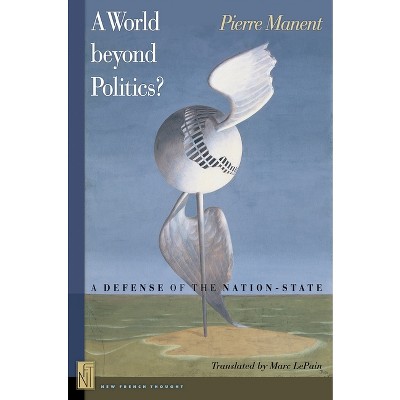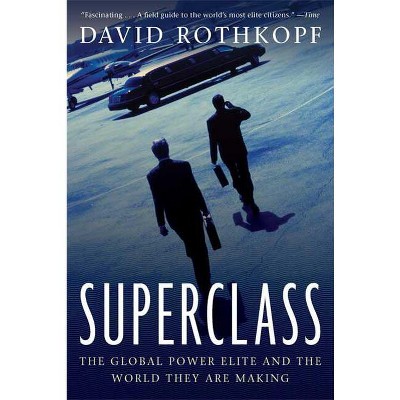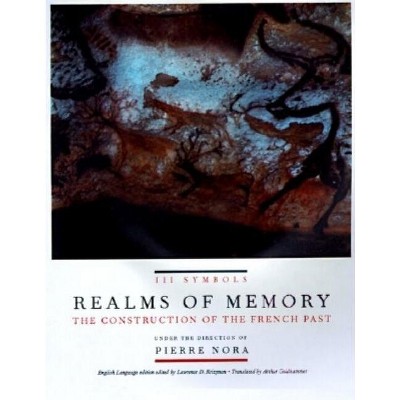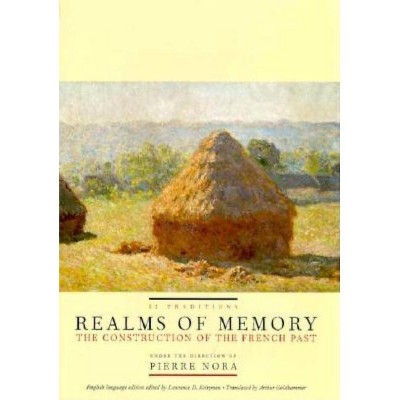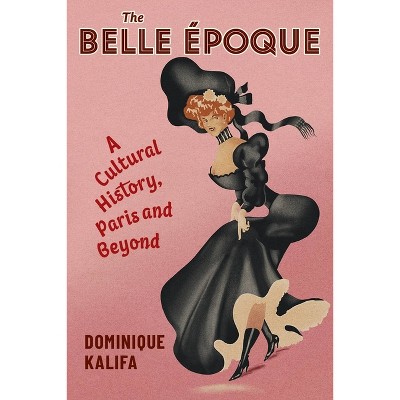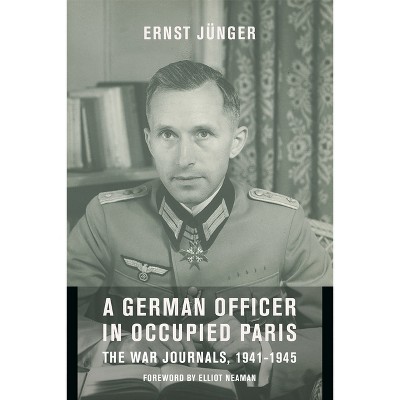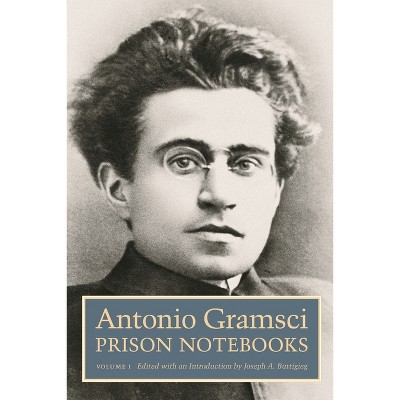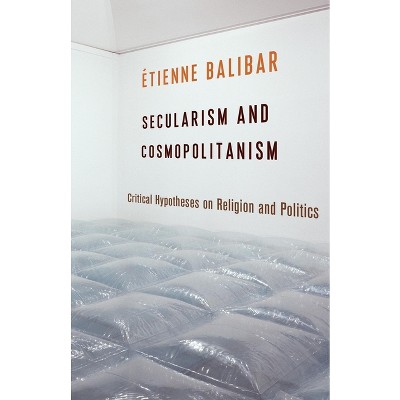Sponsored

Realms of Memory - (European Perspectives: A Social Thought and Cultural Criticism) Abridged by Pierre Nora & Lawrence Kritzman (Hardcover)
In Stock
Sponsored
About this item
Highlights
- Archives, monuments, celebrations: there are not merely the recollections of memory but also the foundations of history.
- About the Author: Lawrence Kritzman is the Pat and John Rosenwald Research Professor in the Arts and Sciences and professor of French and comparative literature at Dartmouth.
- 642 Pages
- History, Europe
- Series Name: European Perspectives: A Social Thought and Cultural Criticism
Description
About the Book
Offers the best essays from the acclaimed collection originally published in French. This monumental work examines how and why events and figures become a part of a people's collective memory, how rewriting history can forge new paradigms of cultural identity, and how the meaning attached to an event can become as significant as the event itself.
Book Synopsis
Archives, monuments, celebrations: there are not merely the recollections of memory but also the foundations of history. Symbols, the third and final volume in Pierre Nora's monumental Realms of Memory, includes groundbreaking discussions of the emblems of France's past by some of the nation's most distinguished intellectuals. The seventeen essays in this book consider such diverse "sites" of memory as the figures of Joan D'Arc and Decartes, the national motto of "Liberty, Equality, Fraternity", the tricolor flag and the French language itself. Pierre Nora's closing essay on commemoration provides a culminating overview of the series. Offering a new approach on history, culture, French studies and the studies of symbols, Realms of Memory reveals how the myriad meanings we attach to places and events constitute our sense of history.
A monumental collective endevour by some of France's most distinguished intellectuals, Realms of Memory explores how and why certain places, events, and figures became a part of France's collective memory, and reveals the intricate connection between memory and history. Symbols, the third and final volume, is the culmination of the work begun in Conflicts and Divisions and Traditions.Pierre Nora inaugurates this final volume by acknowledging that the whole project of Realms of Memory is oriented around symbols, claiming "only a symbolic history can restore to France the unity and dynamism not recognized by either the man in the street or the academic historian." He goes on to distinguish between two very different types of symbols - imposed and constructed. Imposed symbols may be official state emblems like the tricolor flag or 'La Marsaillaise', or may be monuments like the Eiffel Tower - symbols imbued with a sense of history. COnstructes symbols are produced over the passage of time, by human effort, and by history itself.They include figures such as Joan d'Arc, Descartes, and the Gallic cock.Past I, Emblems, traces the development of four major national symbols from the time of the Revolution: the tricolor flag, the national anthem (La Marsaillaise), the motto Liberty, Equality, Fraternity" and Bastille Day. Far from having fixed identities, these representations of the French nations are shown to have undergone transformations. As French republics rose and regimes changed, the emblems of the French state - and the meanings accosiated with them - were also altered.Part II, Major Sites, focuses on those cities and structures that act as beacons of France to both Frenchman and foreigner. These essays range from the prehistory paintings in Lascaux - that cave which, though not originally French in any sense, has become the very symbol of France's immemorial national memory - to Verdun, the site of the terrible World War I battle, now a symbol of the nation's heaviest sacrifice for the "salvation of the fatehrland" and the most powerful image of French national unity.Identifications, the final section, explores the ways in which the French think of themselves. From the cock - that "rustic and quintessentially Gallic bird" - to the figures of Joan of Arc and Descartes, to the nation's twin hearts - Paris and the French language - the memory of the French people is explored.This final installment of Realms of Memory provides a major contribution not only to study the French nation and culture, but also to the study of symbols as cultural phenomena, offering, as Nora observes, "the possibility of revelation."
From the Back Cover
Realms of Memory is a monumental collective endeavor by France's leading intellectuals, exploring the cathedrals and palaces, the rituals, legends, and episodes that form the landscape of French consciousness. The first volume, Conflicts and Divisions, reflects on symbols of political, religious, regional, and generational difference that structure France's self-definition. The book begins with the political clashes that have carved a path through French history and memory, between Franks and Gauls, French and foreigners, Vichy and all other regimes. Contributors explore shifting conceptions of political meaning over centuries, from the often irreverent portrayals of Gauls in such popular media as the Asterix comics to nostalgic reimaginings of pre-revolutionary France by modern ultranationalists. A second section analyzes sites and events of the religious conflicts that underlie French identity. The authors chronicle the manufacture of remembrance, as seen in the Protestant festivals held each September to commemorate the persecution of Huguenots in the sixteenth-century Wars of Religion; and of the processes of forgetting, witnessed in the assimilative tradition among French Jews that has hindered, if not prevented, rediscovery of a distinctively Jewish past and acknowledgements of the French legacy of anti-Semitism. Conflicts and Divisions concludes with a section on issues of time and place, and analysis of the cleavages that separate Paris and province, north and south, and human generations as demarcated by such transformative years as 1789 and 1968.Review Quotes
But in "Realms of Memory," the general level is uniformly high, the scholarship accessible, lashings of information are invitingly presented and the approach is superficial but never shallow; just as it should be in accounts of dead folk and events from a past that is even less penetrable than the present.
Most specialists will prefer to read the essays in the original French. For the average reader, what "Realms of Memory" offers is an unusual look at the French looking at themselves, at France and at their historical memory being simultaneously made and unmade.
French-Jewish historian and publisher Pierre Nora is renowned for editing the monumental series of volumes
"Lieux de Mémoire" for the French publisher Gallimard. Literally, the title means, "Places of Memory," and the
series is the ultimate repository of modern Gallic concepts of national identity. Its brilliant scholarship was
recognized by Columbia University Press, which, from 1996 to 1998, released a plushly appointed threevolume
translation by Arthur Goldhammer as 'Realms of Memory: The Construction of the French Past.'
A magisterial attempt to define what it is to be French.-- "Times Literary Supplement"
Pierre Nora has always insisted that he intended his project to be a sort of counter-commemorative history, de-constructing, as it were, the myths and memories it records. But as he ruefully concedes in his concluding essay in the final volume, the work has had a strange destiny: commemoration has overtaken it and it is now a sort of scholarly lieu de mémoire in its own right. There are three reasons for this. Firstly, Nora is a very powerful figure in French intellectual life and for his magnum opus he secured the services of some of France's best scholars; their essays are small masterpieces, classic contributions to their subject.....Are these distinctively French characteristics of Les Lieux de mémoire--the book and the things themselves--not an insuperable impediment to translation? No: the English-language version...is a major publishing event in its own right. It is as copiously and beautifully illustrated as the original, and the translation, by Arthur Goldhammer, is wonderful--sensitive to the different styles of the various contributors and superbly confident and learned in its grasp of a grand variety of technical and historical terms. The books are a pleasure to read, in English as in French.--Tony Judt "New York Review of Books"
Provides arresting genealogies of a number of the major cleavages in French history, with chapters on the embattled relationship of Jews to the French republic, the peculiar affinities of Gaulism and Communism, and... Paris' haughty condescension toward la province.... Without resorting to polemics, the volume reminds us that the image of the French past is confected as much out of amnesia as out of memory.-- "Lingua Franca"
The original French edition of Realms of Memory, which appeared in three installments during the presidency of Francois Mitterrand, was the intellectual equivalent of the period's monumental public architecture....the essays selected for inclusion here (roughly one-third of the total) are the high carat jewels of the project and some of the best France in historical writing produced in this century. And, far from losing anything in translation, some of the essays have gained considerably more lucidity than they have in the original French. Arthur Goldhammer deserves a medal...-- "New Republic"
This is an indispensable guide to understanding France and the French. As usual, Arthur Goldhammer's translation is superb.-- "Foreign Affairs"
This unusual book deals fascinatingly with everything from the creation of the rousing anthem "La Marseillaise" to the changing role of Joan of Arc in France's collective memory. Even the Eiffel Tower shines forth in surprising new facets.-- "Chicago Tribune"
About the Author
Lawrence Kritzman is the Pat and John Rosenwald Research Professor in the Arts and Sciences and professor of French and comparative literature at Dartmouth. He is the series editor of our European Perspectives series and the editor of Politics, Philosophy, Culture: Interviews and Other Writings, 1977-1984, by Michel Foucault (Routledge, 1990). His publications include: The Rhetoric of Sexuality and the Literature of the French Renaissance (Cambridge, 1991); Auschwitz and After: Race, Culture, and "the Jewish Question" in France (Routledge, 1994); and several monographs published in French (French Forum Publishers).Pierre Nora is Editorial Director of Editions Gallimand. He is editor of the journal Le Debat and is Directeur D'Etudes at the Ecole des Hautes Etudes en Sciences Sociales, Paris.
Shipping details
Return details
Frequently bought together
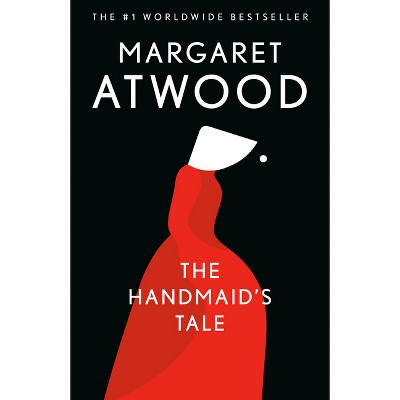
Trending Non-Fiction






